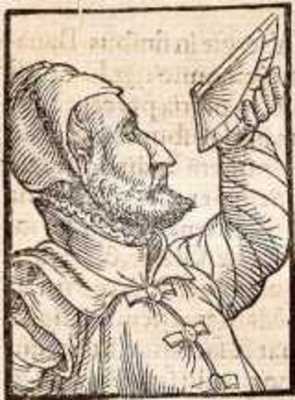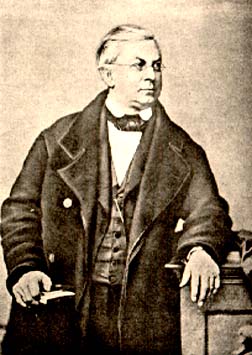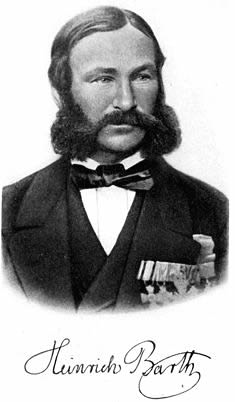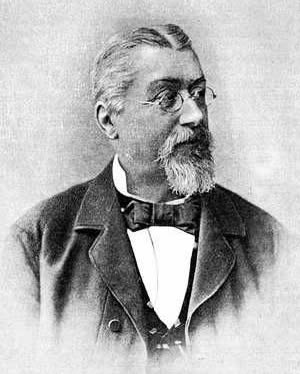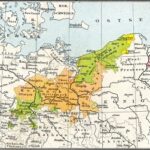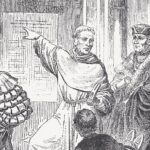February 16, 1514
Birth of Georg Joachim Rheticus (1514-1574) in Feldkirch, Austria. Rheticus was an astronomer and mathematician who was one of the first to accept the heliocentric theory of Copernicus. A professor at the University of Wittenberg, he went to Poland and studied with Copernicus in 1539-1540. He also did significant work on trigonometric functions.
February 16, 1620
Birth of Friederich Wilhelm in Köln, Germany. Friederich Wilhelm was the elector of Brandenburg in the Holy Roman Empire. A member of the Hohenzollern family, he rebuilt the family holdings after the devastation of the Thirty Years’ War and established control over Prussia. He built a strong and efficient army and established a strong economic infrastructure in his territories. His son, Friedrich I, thus had a strong basis from which to start his rule.
February 16, 1746
Birth of Wilhelm Heinse in Langewiesen, Germany. Heinse was a novelist and literary critic who wrote in the Sturm und Drang style. His novel, Ardinghello und die glückseligen Inseln (1787) is the most remembered of his works.
February 16, 1799
Death of Karl Theodor, the Wittelsbach Elector (Holy Roman Empire) of the Palatinate. On December 30, 1777 the Bavarian line of the Wittelsbach family ceased and the succession went to Karl Theodor. The Palatinate was thus united with Bavaria. In reaction to the new size and troublesome strength of Bavaria, Austria laid claim to a number of the territories. In a complex series of intrigues this led to the War of the Bavarian Succession which involved Austria, Bavaria, the Palatinate and Prussia.
February 16, 1804
Birth of Carl Theodor Ernst von Siebold (1804-1885) in Würzburg, Germany. Siebold was a biologist noted for his contributions to the science of parasitology and to the careful factual nature of his research in contrast to the more philosophical approach still common in science at that time. His Lehrbuch der vegleichenden Anatomie of 1846 was an important early work on comparative anatomy.
February 16, 1821
Birth of Heinrich Barth (1821-1865) in Hamburg, Germany. Barth was an early explorer of Africa. He traveled over 10,000 miles in his explorations. He published his findings in Reisen und Entdeckungen in Nord- und Central-Afrika in den Jahren 1849 bis 1855. He became a professor of geography at the University of Berlin in 1863.
February 16, 1826
Birth of Joseph Victor von Scheffel (1826-1886) in Karlsruhe, Germany. Scheffel was a novelist and poet. His poem Der Trompeter von Säckingen (1854) was widely popular as was his novel Ekkehard (1855). He is also known for his 1868 publication Gaudeamus!, a collection of student drinking songs.
February 16, 1834
Birth of Ernst Haeckel in Potsdam, Germany. Haeckel, a student of zoology, was inspired by Darwin’s book The Origin of Species which was published when Haeckel was 25. He himself became a professor at the University of Jena and spent his professional career promoting the ideas of Darwin and attempting to further the understanding of the evolutionary process. Though many of the theories he proposed showed themselves to be flawed in subsequent years of research, he did much to stimulate basic questions in the study of biology. His reputation was much darkened by the Nazis, who attempted to justify their own practices on the basis of Haeckel’s ideas. Haeckel remains a controversial figure. He died in 1919.
February 16, 1868
Birth of Wilhelm Schmidt in Hörde, Germany. Schmidt was a Roman Catholic priest and ethnologist. In 1906 he founded an anthropological journal, Anthropos, which reported on cultures worldwide as encountered by missionaries. Schmidt’s greatest interest was the religious practice of various peoples. From his studies he published a 12 volume work from 1912-1955 Der Ursprung der Gottesidee and in 1930 Ursprung und Werden der Religion.
Back to Today in German History Calendar
